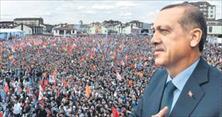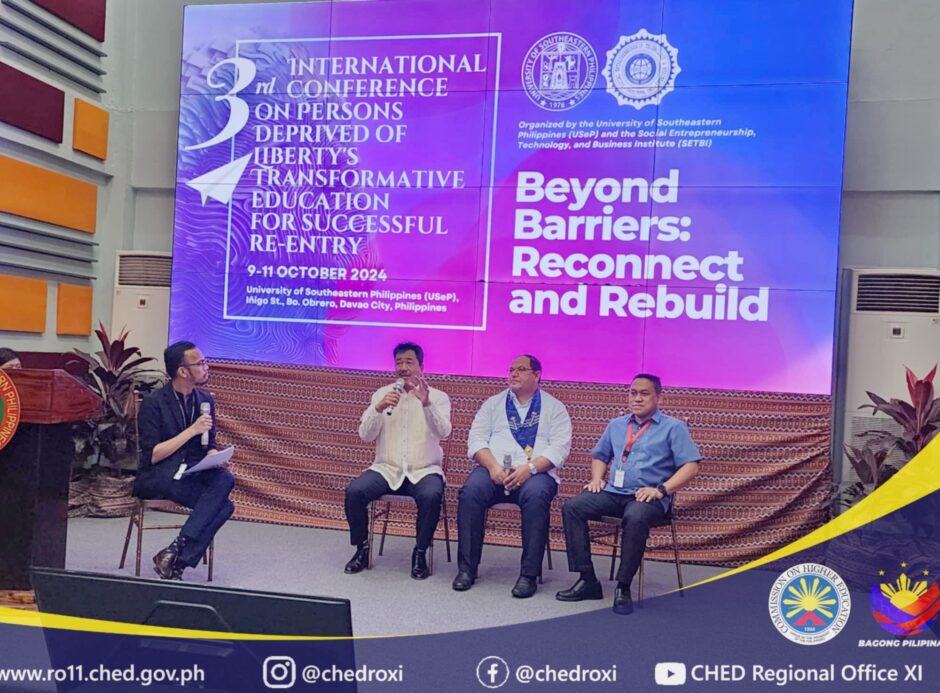 Since the Islamic Justice and Development Party (AKP) took power in 2002, Turkey has played a crucial role in the contemporary Islamic world through economic growth and an increasingly independent foreign policy. Many commentators have even started to suggest that Turkey could be the model democracy for Muslim countries because of the coexistence of democracy and Islam in Turkey, at least on some level. Turkey has apparently become a general inspiration for political and economical liberalization in Arabs countries.
Since the Islamic Justice and Development Party (AKP) took power in 2002, Turkey has played a crucial role in the contemporary Islamic world through economic growth and an increasingly independent foreign policy. Many commentators have even started to suggest that Turkey could be the model democracy for Muslim countries because of the coexistence of democracy and Islam in Turkey, at least on some level. Turkey has apparently become a general inspiration for political and economical liberalization in Arabs countries.
Prime Minister Erdogan was one of the most famous names on the Arab streets. Although often using non-democratic means to achieve its goals, the AKP government has accelerated democratic principles in general, yet the AKP considers itself as a conservative party, accepting secularism in governance and pursuing European integration along with the protection of Islamic values. Pre AKP party, the Turkish military was in charge of Turkey’s democracy. Under the AKP party ongoing political and economical development shows that Turkey is trying to adopt a European based model of liberal democracy, rule of law, and market economy.
However, Turkey has failed to solve the Kurdish minority issues that caused the loss of more than 30 thousand lives in Turkey. Recently Prime Minister Erodgan tried to make a peace deal with the Kurdish rebels, the Kurdistan Workers’ Party (PKK), but one of the Muslim missionary groups, the Gulen organization, attempted to block the government from having peace with the PKK. If there is peace in Eastern Turkey, no one will join Gulen’s group; therefore he is against the peace plan.
Besides being an obstacle to peace, Gülen and his mission organization is another big obstacle to Turkey’s becoming fully democratic. However, Erdogan is willing to get rid of these obstacles. In many countries, there are what we call “deep state” structures. In Turkey it is called a parallel government, which means a government inside the government. Previously, the Turkish Prime Minister was fully aware of and even allied with the secretive religious group, whose leader escaped from Turkey and has lived in the USA for more than fifteen years. The former imam’s self-imposed exile resulted from his being charged with trying to replace the Turkish secular government with his version of an Islamic system of government and for penetrating many governmental entities to a parallel state: the state, judiciary, police, military, bureaucracy, businesses, academia, sports, banks, media, and security apparatus.
According to the Prime Minister, the parallel state has been illegally recording the conversations of the Prime Minister, the President, Turkish intelligence and others such as businessmen and intellectuals. The Gulen mission organization orchestrated the anti-corruption probe launched December 17th of last year, which has targeted Prime Minister Erodogan, his sons, members of his party, and some business leaders.
So who is Fethullah Gülen? Gülen is a controversial imam, born in 1938 in a small village in Eastern Turkey. He served as an imam in Turkey until 1981, when he officially retired from active preaching, a role he took on although he had no formal Islamic education or formal education. The Kurdish Islamic reformer Said Nursi significantly influenced his ideology. Gülen has used his followers for his self-promotion to make him one of the world’s most influential people.
Gülen and his mission organization have managed to recruit more than seven million followers in Turkey, America, and around the world. He has opened schools in 163 countries and has more than 130 schools in the United States. The first Gülen mission organization school opened in the Philippine in 1997, the Filipino–Turkish Tolerance High School in Zamboanga, followed b y Fountain International Schools in Manila, and the Fountain International Santolan branch. Gulen’s mission organization includes a confederation of businessmen and industrialists of Turkey (TUSKON) and the equivalent in this country, the Turkish Chamber of Commerce of the Philippines, INC. (TCCP). Soon they are planning to open up schools in Davao City as well.
Gülen owns the Zaman daily newspapers, Samanyolu TV, Ebru TV, sport teams, and businesses. For Gulen the best way to spread his ideas was to ensure mass literacy of the Anatolian middle class, to permeate schools with his Islamic values and notions of science, especially emphasizing mathematics, chemistry, and physics. His methods enabled his organization to form a new Turkish society to eradicate any views that contradicted his from Turkish society and state institutions, with the aim of replacing them with his way of propagating an Islamic life style. Members of Gülen’s mission organization accuse Prime Minister of becoming a dictator and not being democratic, and while there may be some truth to the claims, they are used as propaganda to defame Erdogan in the next election.
Since its establishment, the Republic of Turkey has wanted to be part of Europe with its ideal of democracy, although it has experienced many challenges to adopting the democratic process. The current Turkish government, the AKP, has tried to resolve some of Turkey’s major problems incrementally and has increased its popularity in every election, although it is not without detractors.
Member of Gülen’s mission organization believe they have been chosen by Allah to spread Islam around the world. Gülen’s followers consider themselves like the companions of Mohammed; but in fact, they have been poisoned by power and have started to imagine themselves as a government inside the government. One of the characteristics of the Gülen mission organization is that it uses every legitimate way to spread his brand of Islam. Even lies and distortion are allowed for them as long as they help him to accomplish his goals. Gülen is now accusing the Prime Minister of Turkey of being non-democratic, cruel, and non-transparent, as well as the biggest obstacle to Turkey’s democratization.
However, Gülen himself worked in harmony with the government for almost ten years, never mentioning the abuse of human rights, and never mentioning requests for a solution to the Kurdish problem, democratization, and transparency. In reality Gulen himself is not transparent but rather operates a very secretive organization with the goal of taking over the Turkish state entirely. Because they believe that Allah has assigned them to spread Islam and that they are the best representatives of Islam, they want to take hold of the Turkish state since in their eyes the rest of Muslims allegedly misrepresent Islam. The Turkish Prime Minister has admitted that he and his party have been deceived, and he has already revealed the structure of Gülen’s movement inside the Turkish government. He has pledged to deconstruct Gülen’s mission organization after the local election on March 30,
For Gülen to accomplish his goal, he has waged war on the current Turkish government, that is Prime Minister Erdogan and his AKP party because the AKP revealed Gülen’s octopus plan by abusing officials in the judiciary, police, and intelligence, who are themselves loyal to Gülen instead of to the Turkish state. They will deliver sensitive Turkish information to Gulen first. Without Gülen’s confirmation they will not implement anything. Ironically, Erdogan, who is accusing Gülen and his mission organization, is also a devoted Muslim himself with more than 50% of conservative Turkish Muslims having voted for him.
If someone from the USA or Europe tells the public that Gülen and his mission organization is dangerous and should not be allowed to use tax money to operate and spread his version of Islam, the public would accuse the individual of being Islamaphobic or would sue him or her for heavy fines to silence the informer, but since Gülen has been accused by the Prime Minister of Turkey, who is a Muslim himself, he cannot do anything except have all their dirty laundry revealed.
So now that the Turkish government and Prime Minister Erdogan understand Gulen and his mission organization’s goals, they are preparing to overcome him through democratic means by calling on the public to stand by democratic norms, values, and principles. It is true there is debate over what constitutes democracy both in theory and in actual implementation of democracy. If the democracy is achieved when government is ruled by the consent of the people and through free and fair elections, then the AKP government is democratic. Gülen and his organization have not been elected by free or fair elections; therefore, it is nondemocratic. So Gulen and his mission organization are not about justice, peace, dialogue and love but rather about power. The current fight in Turkey is about an inability to share power, and is fueled by contradicting political and economical interests. This current fight hurts Turkey’s transition to a fully consolidated democracy and impairs its fragile institutions.
One of the main principles of democracy has been defined by Robert Dahl as a form of government in which people have voice in the exercise of power through elected representatives. However, democracy not only requires free and fair elections, but also freedom of expression; further, it depends on government policies and the votes and preferences of its citizens, not on an unelected authoritarian, Gülen. Therefore, democracy is not just about majority rule, but requires political freedoms, so there can be debate and independent decision making; however, under Gülen’s rule there is no independent thinking or decision making, no independent media, and no rule of law. Elections this week will reveal if the people of Turkey will decide to vote to keep Prime Minister Erdogan in power and let him continue Turkey ‘s transition to democracy, albeit a halting one, or will chose Gülen to keep Turkey like Iran, ruled by a theocracy. I think Turkey will chose democracy over theocracy.
You may email the author at:aland_mizell2@hotmail.com

